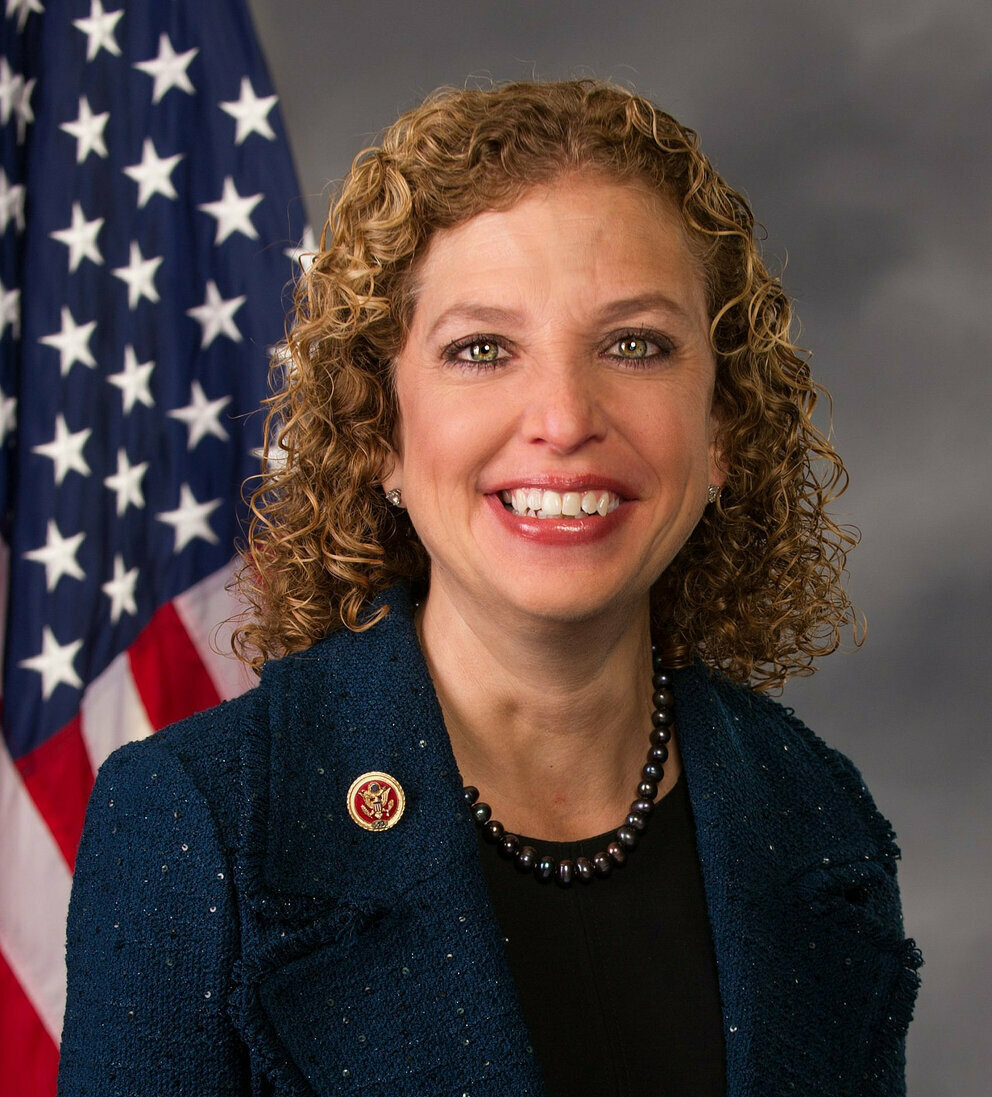Jewish Heritage Month breakfast on Capitol Hill
Dozens gathered in the US Capitol last Thursday for a congressional breakfast marking Jewish American Heritage Month, which is May.
Over bagels and lox, attendees heard from 14 members of Congress, who largely spoke about Jew-hatred, in line with the event sponsor, the Combat Antisemitism Movement.
Rep. Debbie Wasserman Schultz (D-Fla.), who is credited as one of the originators of what former President George W. Bush proclaimed as Jewish American Heritage Month in 2006, told JNS that antisemitism today shows why the designated month is more necessary than ever.
“We need to treat any form of hate directed towards a community as if there’s an attack on one, there’s an attack on all,” the Jewish congresswoman said.
Jews helped shape America even prior to its inception, Wasserman Schultz, who spoke at the breakfast, told JNS. “We need to make sure that we educate Americans about the contributions that Jews have made throughout American history towards American success,” she said.
Since hate is taught not innate, education is very important, particularly from the earliest stages, in preparing people to resist antisemitism. “Understanding fosters unity and harmony,” said Wasserman Schultz. “I don’t like to use the word ‘tolerance’ because we all want to be more than tolerated.”
Sen. Ben Cardin (D-Md.) told JNS that he is optimistic about the Biden administration’s “all-government, all-stakeholder approach” to combating hate.
That strategy involved education to combat misinformation and law enforcement “because we have to recognize hate crimes as being not only a violation of our criminal statute but a violation of our values,” he said.
It’s also necessary to have leadership and coalition-building “to make sure we’ll never tolerate and never trivialize and never accept hate.”
Other members of Congress who spoke with JNS emphasized law enforcement.
The lack of enforcement in New York is tragic, said Rep. Mike Lawler (R-NY), who represents more than 100,000 practicing Jews in New York’s 17th District.
“We’ve seen a significant increase, especially in New York, of antisemitic hate crimes, much of which has not been prosecuted,” he told JNS.
“It is imperative that we take action both legislatively and legally to ensure that no one falls victim of an antisemitic hate crime. Nobody should be attacked, physically or verbally, simply for practicing their faith.”
Defining antisemitism is essential to defeating it, according to Lawler. “That’s part of the problem with hate crimes at times. Sometimes, it leaves room for interpretation, but there should be no interpretation of it,” he said. “It should be very clear.”
For Sen. Pete Ricketts (R-Neb.), calling out rising antisemitism is important, as is supporting Israel. “We just got to be vocal. We just got to be out there. We just got to be present,” he said. “That’s the way we combat this antisemitism and make sure every time we see it, we condemn it; let people know it’s wrong and hold those that do it accountable.”
Rep. Marc Veasey (D-Texas) thinks that “coded” antisemitism on social media is scarier and “has the power to be more disruptive” than it did in the 1950s and 1960s. To counter that disruption, he prescribes conversations.
“That’s the only thing that’s going to really help us,” he said. “Political leaders in both parties have to be willing to sit down and have conversations, too, and talk about things that make them uncomfortable.”
When pressed, he acknowledged that political leaders aren’t ready to hold those discussions but thinks that events like the breakfast “will eventually drive us in that direction.”
He is encouraged by “overwhelming” bipartisan congressional support for Israel, he added.
Elan Carr, former US special envoy to monitor and combat antisemitism, told those assembled that Israel is “history’s most beautiful response to history’s greatest evil.”
“We celebrate Jewish American heritage not because of rising antisemitism but despite it,” he said.

 50.0°,
Mostly Cloudy
50.0°,
Mostly Cloudy 




